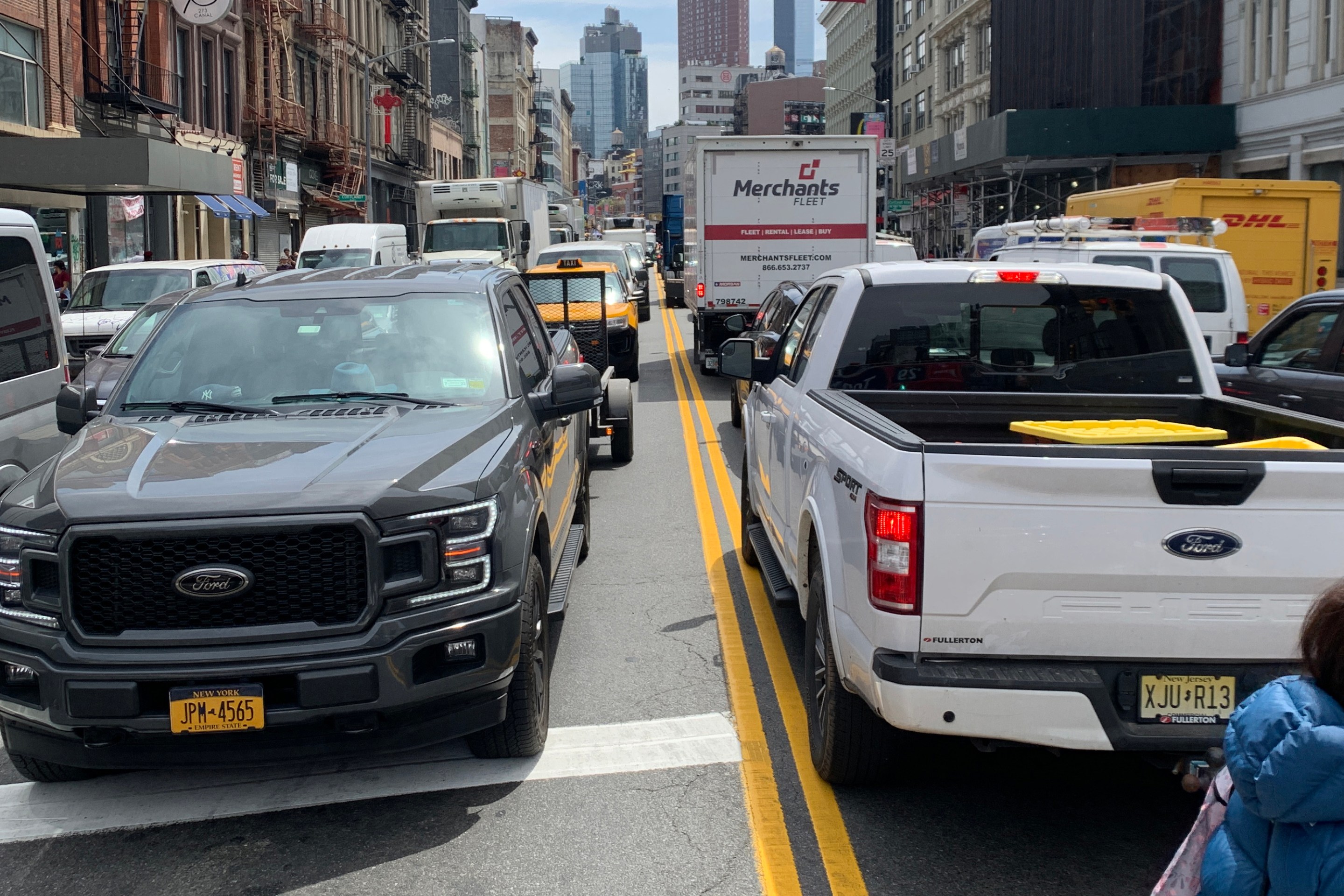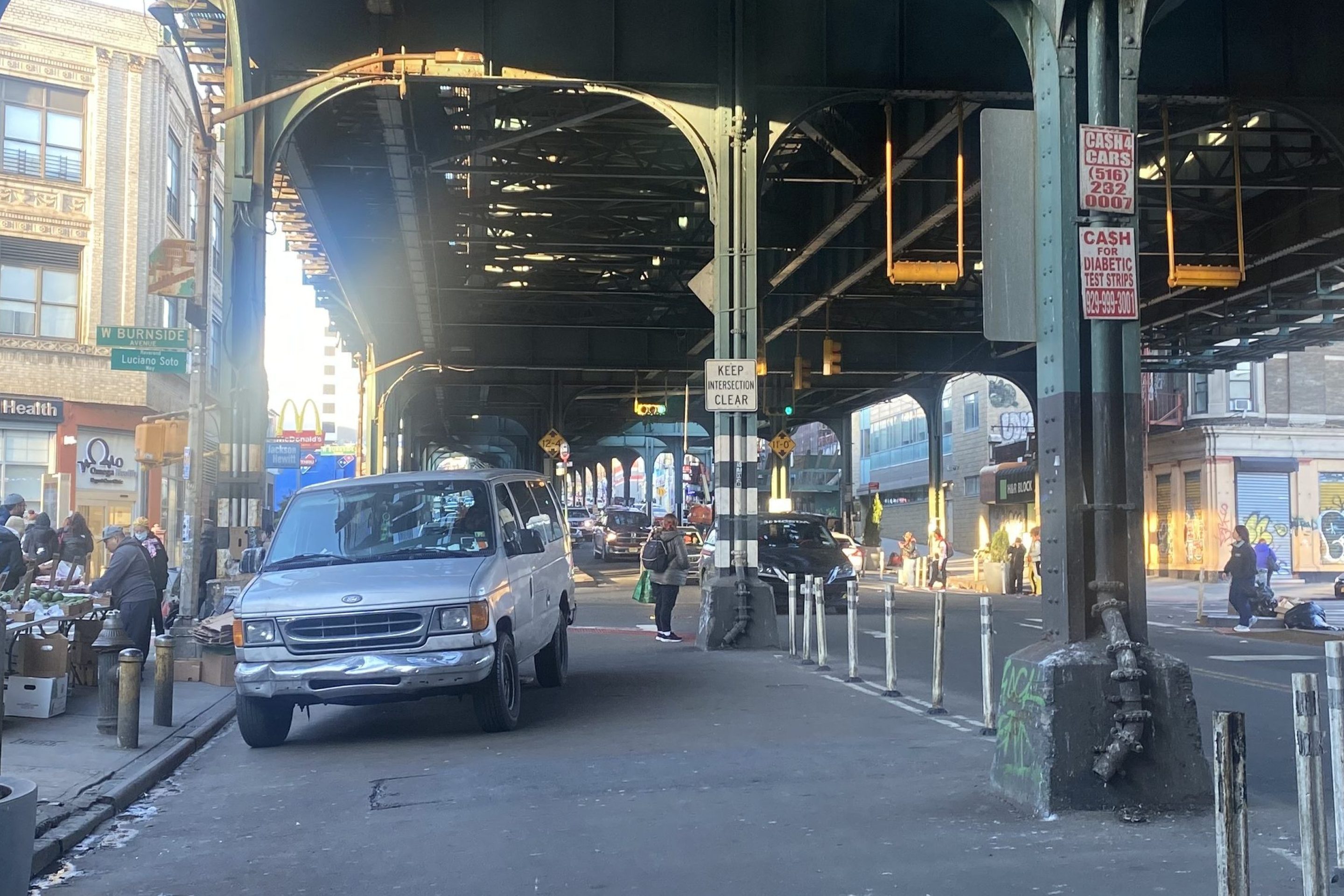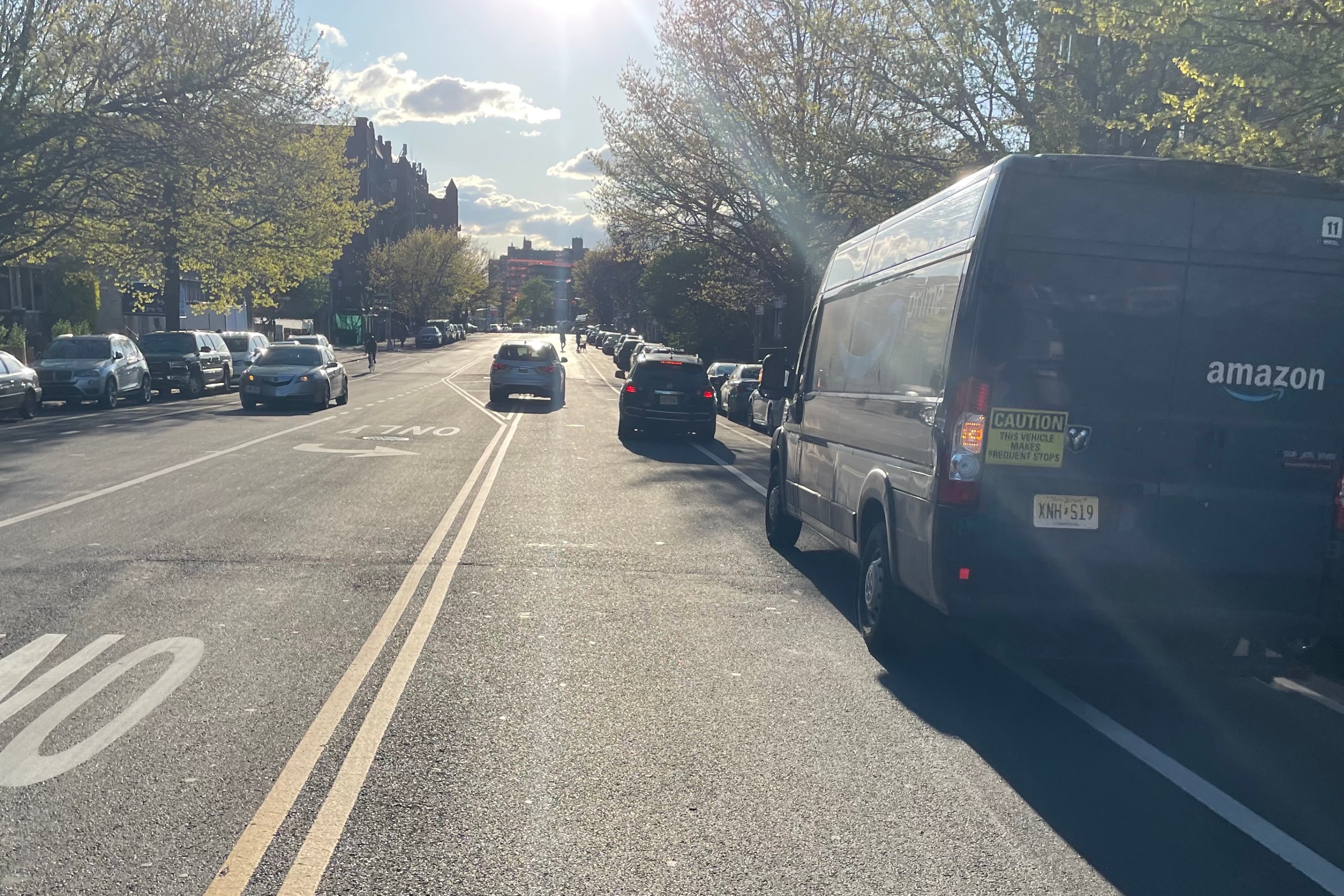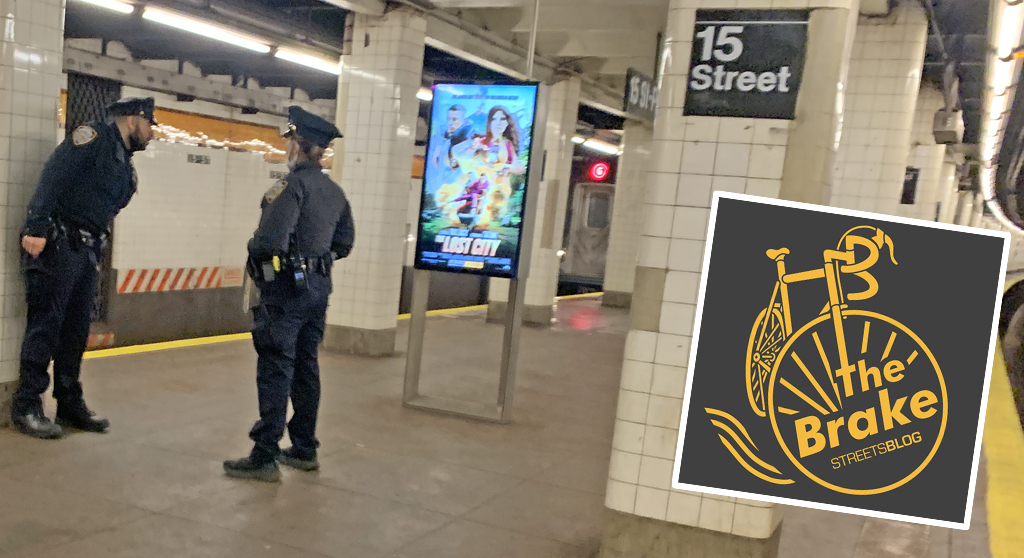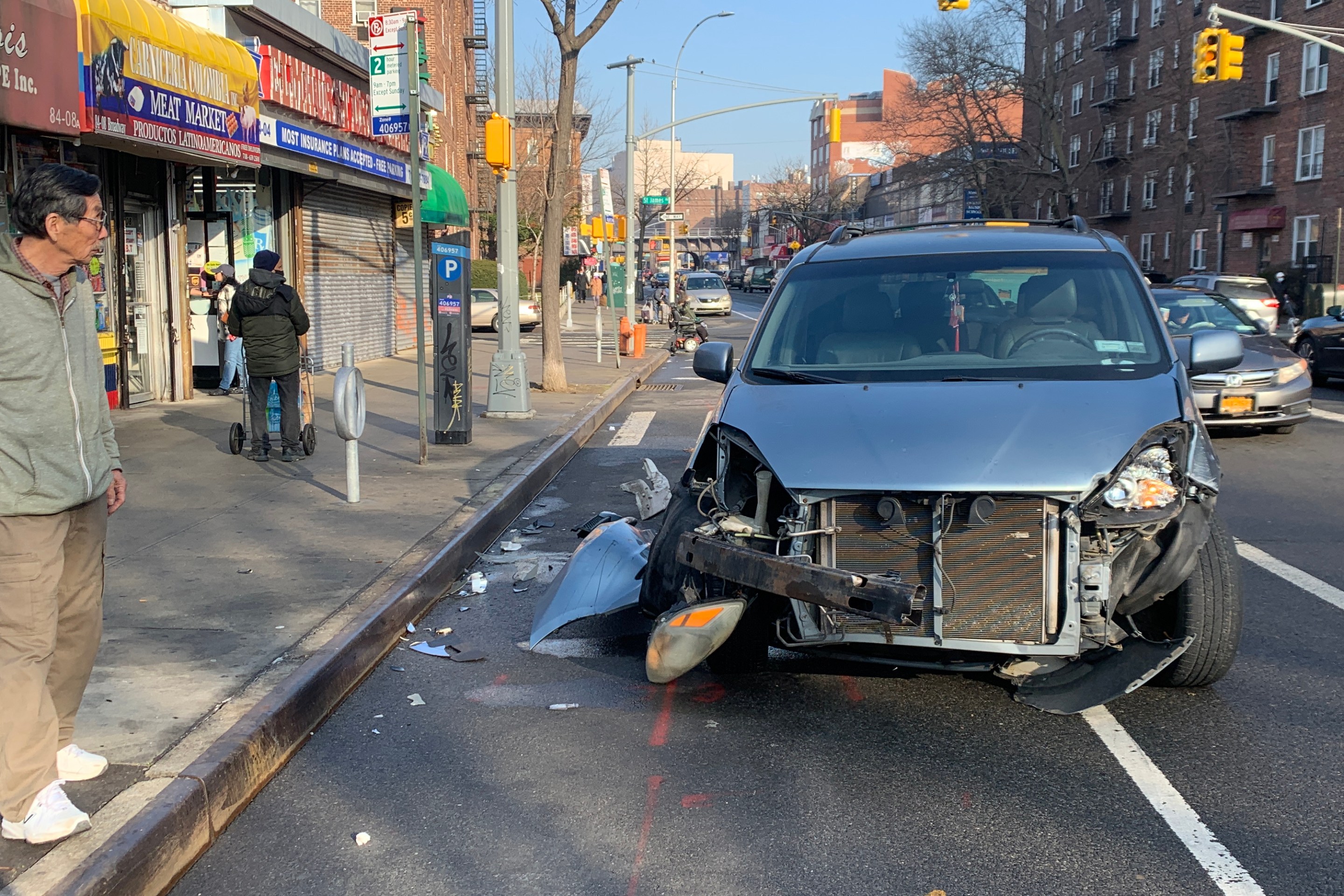Today marks the launch of what Hoboken officials are calling the first citywide car-sharing initiative in the country, with 42 shared cars parked on the streets of the mile-square city. The "Corner Cars" program, which is intended to reduce car-ownership rates, could provide a model for expanding car-sharing across the Hudson. What happens in Hoboken will demonstrate how much car-sharing can reduce traffic in areas where people already don't drive very much.
Car-sharing already has a history in Hoboken, which is where ZipCar service debuted in New Jersey, according to Ian Sacs, the city's director of transportation and parking. Researchers found that 17.6 households gave up a car for each ZipCar on Hoboken's streets.
Hoboken's unique demographics and travel patterns make car-sharing a particularly powerful tool there. The city contains a high volume of cars compared to the space available to store them. Around 60 percent of residents commute by transit, bicycle, or walking, but still own cars for recreational use, said Sacs. Shared vehicles could save many of those residents significantly, while reducing incentives to drive. Hoboken is also compact enough that, even with just 21 car-sharing locations, 90 percent of the population can walk to a shared car in five minutes or less.
Car-sharing is generally believed to reduce both car ownership and the overall amount that people drive, but some worry that in areas where people drive relatively little, the effect of widespread car-sharing could be minimal. If enough car-free households start driving shared cars, it could even shift more trips to the automobile.
The Hoboken program should answer some of these unknowns about car-sharing. The terms of Hoboken's contract with the car-sharing provider, Hertz, require the company to conduct surveys of its membership to determine how their travel behavior changes. The city will also be tracking the movement of car-sharing memberships and residential parking permits to independently assess how much the program affects car ownership. Those are numbers that New York and other cities will likely be anxious to take a look at.
Besides reducing car ownership rates, car-sharing promises other benefits to Hoboken. First, the city has figured out a way to use the car-share parking sites to promote pedestrian safety. Although New Jersey state law forbids parking too close to an intersection, in the Hoboken parking crunch, drivers regularly encroach on that safety zone. The car-sharing sites will occupy the two spaces closest to the intersection, said Sacs, which should keep cars back. "It's very clear that you can't park in front of them," he said.
Fiscally, car-sharing is a net gain for Hoboken. Hertz is paying the city $100 per month for each space, for a total of around $50,000. Because car-sharing is only being placed on residential streets, no meter revenue is lost. (The foregone revenue from residential parking permits, which cost only $15 per year, will not be substantial.)
Compared to current rates in parking garages, said Sacs, $100 per month "is still relatively cheap for a profiting business to pay," but all parties needed to make sure the program gets off to a successful start during the initial two-year contract with Hertz. "After two years, when this program has been successful," continued Sacs, "it's very likely that the next round of bidding will offer us twice the current amount."
Sacs sees the program eventually scaling up to between 300 and 500 shared cars. In a city with about 17,000 residential parking permits, that could put a big dent in car ownership.
While Hoboken has used its on-street space for shared vehicles, New York's Department of City Planning recently announced an initiative to encourage shared cars only in off-street garages. Though the NYC Department of Transportation claims that alternate side parking and snow removal pose logistical challenges for car-sharing, Hoboken officials believe they've solved those problems. The city worked out an agreement with Hertz to schedule car maintenance for the same time as street cleaning (an easier feat in a city the size of Hoboken). If the car doesn't get moved and the area around it becomes dirty, the company is on the hook for cleaning it. The company is also responsible for clearing their cars out from large snowstorms.
The real contrast, however, may be the coordination between parking policy and transportation policy. When hiring Sacs, Hoboken Mayor Dawn Zimmer announced in a press release that the city's Parking Utility would be changing its name to the Transportation and Parking Utility, "to make clear that transportation and parking are related issues that will be addressed in an integrated manner in her administration."
The explicit link between transportation and parking policy has yielded this attempt to address the Hoboken parking crunch by reducing demand for parking, instead of futilely trying to build more supply and generating more traffic in the process. Here in New York, however, parking policy -- especially decisions about off-street parking -- is largely divorced from transportation goals and from PlaNYC, the city's supposedly integrated sustainability initiative.

